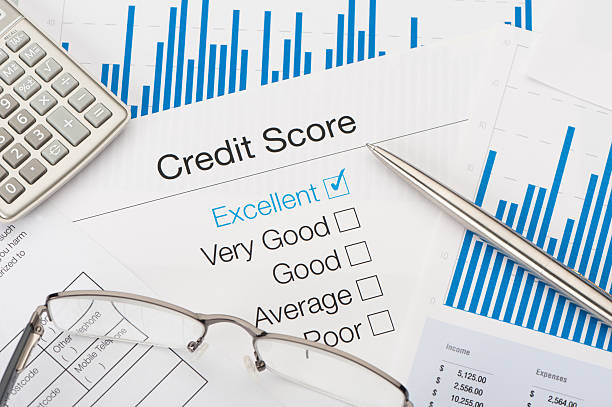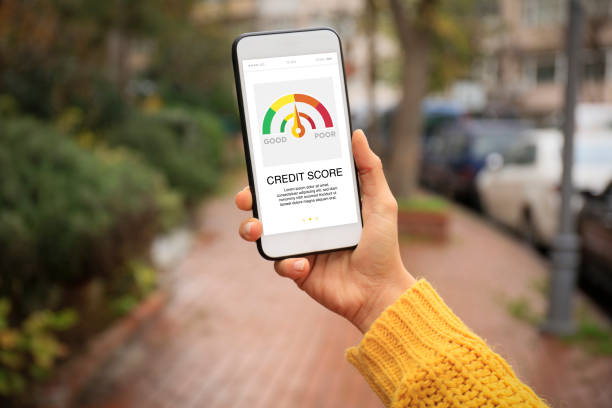Getting a mortgage in Canada is the key to purchasing your own home, and with mortgage sales up by 33%, it seems that everyone is jumping on this train. However, the increased mortgage sales also mean that it’s getting harder to get a mortgage.
To get a mortgage, you’ll need to not only meet the minimum credit score for a mortgage in Canada but also have a solid credit history. This shows your mortgage lender that you’re able and reliable when it comes to paying back bills.
If you’re ready to learn more about how to get a mortgage, keep reading. This guide answers the question “what credit history do I need for a mortgage” as well as looks at other important credit score factors surrounding your mortgage.
What Is the Best Credit Score to Get a Home Loan?
If you’re asking yourself “what should my credit score be to get a mortgage,” then you’re probably thinking about meeting the bare minimum requirements. However, the truth is that there’s no real benchmark for how high of a credit score to get a mortgage.
You can get a mortgage even if your credit score isn’t excellent. However, you’ll most likely pay higher interest rates or have to come up with a larger downpayment.
To give you an understanding of the best credit score for getting a mortgage in Canada, let’s take a look at a few different credit scores and what they mean to lenders.

741 or Higher
If you have a credit score of 741 or more, then congratulations! You have an excellent credit score and will be able to get some of the best mortgage rates.
713 to 740
In this range, you have a good credit score. You should still be able to get low mortgage interest rates and should also have quite a few options available to you.
660 to 712
A score in this range is considered to be a fair credit score. Once you reach a 660 score, your credit score will be considered average and could result in lower rates.
575 to 659
Credit scores in this range are below-average. When you have a credit score lower than 640, you could start to have trouble getting a loan from a traditional mortgage lender.
300 to 574
Credit scores ranging from 300 to 574 are considered poor. While they need improvement, that doesn’t mean you won’t be able to get a mortgage. However, it does mean that you’ll likely pay high-interest rates.
What Credit History Do I Need for a Mortgage?
It’s not just your credit score that qualifies you for a mortgage. Mortgage lenders look at a few other factors regarding your credit history, including:
- Your income
- The type of employment you have
- Your financial history
- Your payment history
- The size of the loan
- The property you’re purchasing
In addition to these factors, mortgage lenders will check out your credit history to be sure that you have no consumer proposals or bankruptcies. They’ll also look to see what overdue payments you have, if any, and how far overdue they are.
Mortgage lenders will take a look at your monthly living costs and any sources of debt that you have. They’ll take a look at your condo fees, heating bills, property taxes, credit card payments, car loans, and open lines of credit.

How Do I Get a Mortgage if I Have Bad Credit?
Even if you don’t meet the average credit score required for a mortgage, that doesn’t mean that you can’t get a mortgage at all. You’ll still have options available, you may find that you have higher interest rates.
The good news is that there are a few steps you can take to still get approved for a mortgage even if you have bad credit. Let’s take a look at a couple of ways that you can get a mortgage even if your credit isn’t the greatest.
Make a Bigger Downpayment
Even though lenders look at your credit history and credit score, that’s not the only way you can demonstrate that you are a reliable borrower. Another way to do so is to make a larger downpayment.
A larger down payment is usually considered to be 20% or more of the total value. This is great for demonstrating that you have a large income as well as good budgeting skills.
On top of that, the bigger downpayment you can make, the smaller the mortgage payments you can pay. That means that you can end up having more manageable mortgage payments in the long run.
Getting a mortgage with bad credit is far easier if you can make a larger down payment because it proves to your lenders that you still have good financial responsibility. It can also make you a more attractive candidate if you can pay down your mortgage faster.
Use an Alternative Lender
If you have a credit score that’s below 600, you’ll likely find that it’s difficult to get a loan from Canada’s major banks. In this case, you can work with an alternative lender to get a mortgage.
Alternative lenders are typically more lenient than traditional lenders and will help you get your loan much faster. Just be prepared to pay a higher downpayment than you would with a traditional lender.
Get a Co-Signer
Another way to get a mortgage if you have bad credit is to find a cosigner. This method can help you avoid paying a higher downpayment and can still let you work with traditional lenders.
The reason for this is that your co-signer’s credit and income are used to help qualify your income. That means that instead of only looking at your personal credit score and history, they’ll also be looking at your co-signers.
If you’re going to get a co-signer, make sure that you select someone who has a solid credit history and a good credit score. You should also make sure that they don’t have a large amount of debt.
Improve Your Credit Score
For those who aren’t racing to buy a new home, the easiest way to get approved for a mortgage is to simply improve your credit score. This option will take quite a bit of time but will be the best method for getting a mortgage in the long run.
To boost your credit score, you’ll generally want to pay your bills on time, be selective about what credit cards you apply for, and not close old credit accounts. You’ll also want to avoid using more than 30% of your available credit.
By following these steps, you can slowly begin to build back your credit so that you qualify for a mortgage in Canada.

Tips for Boosting Your Credit Score
If you’ve decided to take the credit-building route, good for you! This is the healthiest way to build credit in the long run.
To help you more effectively ditch the bad credit score and build a strong credit history, we’ve put together a few additional tips. Let’s check out these extra steps you can take to boost your credit score.
Monitor Your Credit Score
The first step to improving your credit score is keeping an eye on your credit. Doing so will help you get a good idea of where your credit stands and what issues are causing your score to drop.
You can get free access to your credit score. From there, you’ll get a breakdown of your credit and can check out what factors you can improve to boost your score.
Watch Your Use of Credit Cards
Another important factor to keep in mind when boosting your score is how much credit you’re using. We often run up huge balances on our credit cards without even realizing it, which can contribute to bad credit.
You should make a point of using no more than 30% of your total credit. That means that if you have a credit limit of $1,000, you should have no more than $300 on your cards at a time.
Pay Bills on Time
Did you know that making timely bill payments accounts for a whopping 35% of your credit score? That makes it the biggest factor affecting your credit score and makes paying your bills on time extremely important.
The easiest way to stay on top of paying your bills is to set up auto-payment systems. That way, the money leaves your account without you having to take any additional action.
Take Out a Mortgage in Canada
Now that you know the answer to “what credit history do I need for a mortgage?” you’ll be able to take out a mortgage with no problems. Using these tips and tricks, you can buy the home of your dreams.
Are you ready to take out a mortgage in Canada? Turnedaway.ca can help! Get in touch with us today and we’ll help you get a mortgage so that you can move into your dream home.




